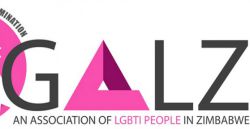 Speaking during a workshop hosted by Zimbabwe Lawyers for Human Rights in Harare Thursday on key populations in the country, GALZ Programmes Officer, Sylvester Nyamatendedza, expressed dissatisfaction with treatment given to their members by some government officials and the “negative†reportage by some sections of the media.
Speaking during a workshop hosted by Zimbabwe Lawyers for Human Rights in Harare Thursday on key populations in the country, GALZ Programmes Officer, Sylvester Nyamatendedza, expressed dissatisfaction with treatment given to their members by some government officials and the “negative†reportage by some sections of the media.
“Members of GALZ have experienced human violations such as loss of employment, denial or poor service delivery, disownment by family, illegal arrests, bulling and raids due to their orientation but, we are still part of the society as we ask for equal treatment with any other groups.
“Can anyone tell me what changes if I am gay or lesbian? Society has a great role to shape groups of people through acceptance of their behaviour,†Nyamatendedza said.
Nyamatendedza reiterated the need for an in depth understanding of sex, sexuality and gender parity so that there is respect for each group of people in the society regardless of sexual orientation.
“Recently, a university student dropped out of college after a lecturer kept on insulting him during lectures for being gay.
“On December 19, 2014, a group of lesbian, gay, bisexual, transgender and intersex (LGBTI) people was attacked by suspected state agents as they were enjoying a Christmas party and more than 35 members were injured with some being hospitalized,†he added.
Nyamatendedza then blasted some media organisations for negative reporting which he attributed to some editors trying to make high sales at the expense of the LGBTI.
He challenged journalists to be considerate and avoid thinking of sales only or high turnover at the expense of gays, adding reports have to report fairly, objectively and be evidence-based.
He said effects of negative reporting/articles had often resulted in suicidal attempts and thoughts by their members and a decrease in health seeking behavior which in turn led to the spread of HIV.
Nyamatendedza highlighted the need to; “Report beyond hit (juicy) stories but, also write about life experiences of LGBTI, informing the public on the stance of the law and homosexuality.â€
In Zimbabwe, the Constitution is silent on homosexuality but, same-sex marriage is illegal, which in itself is a legal dilemma.
Post published in: Human Rights

